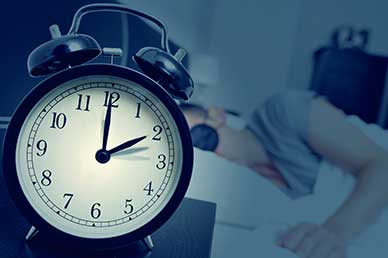New research shows that Daylight Saving Time can affect our health in a wide variety of surprising ways, including reproductive health and IVF success rates.
Millions of people will be struggling to get out of bed this Monday after Daylight Saving Time, also abbreviated DST, steals an entire hour of sleep from our schedule. Daylight Saving Time once existed to save electricity by giving people more hours of sunshine in their day. In modern times, we have continued the practice of moving clocks forward in spring and backward in fall more out of tradition than necessity. However, this tradition may have immense health costs, creating higher disease risk and impacting almost every aspect of our health.
Can Springing Forward Affect IVF Success Rates?
Many American couples struggle with infertility and use IVF, or in vitro fertilization, to build their families. The stakes are high in IVF and other reproductive technologies, with couples spending hundreds of thousands of dollars for their shot at becoming biological parents. According to a new study, the spring change of time has a surprising impact on IVF success rates.
A recent study looked at the IVF success rates of women who had IVF in the three weeks after the springtime change compared to those who had it at other times. Surprisingly, the women who had this reproductive technology in the 21 days after the time change had a significantly higher chance of miscarriage. Researchers acknowledge that this subject will require more study in order to confirm conclusions, but for the time being, it appears that a disruption in circadian rhythm can affect even our fertility.
Health Effects of Daylight Savings Time
This is not the first study to find that our annual loss of just an hour’s sleep can have repercussions for public health. Research in chronobiology has consistently found that changing time, and thus changing circadian rhythm, can have a profound impact on our health. The spring change in time has been linked to a 10 percent increase in heart attacks. The risk of stroke and other cerebrovascular events rises 8 percent as well. These effects appear to be especially profound in the elderly, who already are at higher risk of catastrophic health events.
Chronobiology research has also found that the springtime change can have a very real effect on the finances of our nation. Car accidents increase by such a percentage that researchers estimate more than 300 deaths are due to the time change alone. Accidental events on the job also increase sharply after spring forward. Millions of dollars are lost to lower productivity as well as costs from worker accidents. These are just the known losses; there are likely more that cannot be as easily quantified. Is it worth so much money as well as human lives just to have more daylight?
Circadian Rhythm and Mental Health

The effect appears to be especially strong for adolescents. Teens already have trouble adapting to the sleep-wake demands of an adult schedule-oriented world. When these demands suddenly change and become more stringent, teens may suffer from exhaustion and the resulting mental health and intellectual disabilities. In fact, they have lower SAT scores on average. This effect is not a small one; teens who took this test, which can be a deciding factor in college admissions, immediately after the spring change in time saw a 2 percent difference in scores.
Getting the Circadian Rhythm Back on Track
If you are one of the many affected by Daylight Saving Time, there are ways to make the transition a bit smoother. Try to go to bed earlier and earlier in the days preceding the time change to allow your body time to get used to the spring forward. In addition, many people find that using chamomile tea or melatonin in the week before a time change can help them adjust to an earlier bedtime. Researchers also recommend exposure to bright light soon upon waking as a way to gradually begin to wake earlier. Last, avoid caffeine in this transitional time. While caffeine can help people to wake, it’s long term effects may mean less sleep and thus less ability to adjust to changing time.
Losing an hour of sleep is never easy. However, there are ways to mitigate the effects. By gradually changing your innate rhythm so the big change in time is not as momentous, you hopefully can lessen the psychological and physiological effects of springing forward this March.







